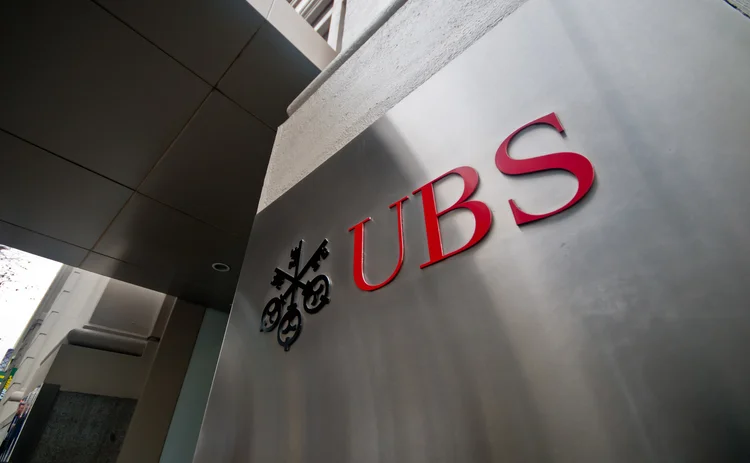
Derivatives house of the year, Australia: UBS
Asia Risk Awards 2024

UBS hasn’t had a wealth management business in Australia since 2016, when a management buyout saw it exit the sector. But, thanks to the integration of Credit Suisse, the country’s wealthiest family offices are firmly in the sights of the Swiss bank once again.
Since agreeing to buy Credit Suisse in March 2023, UBS has been working diligently across all its operations to integrate the two businesses together. In Australia, the two domestic units were extremely complementary.
“We were natural partners with very little overlap,” says Matthew Campbell, head of derivatives and solutions, Australia and New Zealand. “To be able to have a wealth management business integrated back into Australia is key for us, both from the point of view of the domestic investment bank and from a group perspective. It opens up a whole range of new opportunities.”
The merged entity will now be able to deliver more tailor-made over-the-counter derivatives solutions for wealth management clients. The merger should also help with risk recycling, with the investment banking arm helping to offload positions into the wider market.
A clear illustration of the added value that UBS can now bring to wealth management clients in Australia comes from an equity-linked reverse convertible product that the investment bank was able to structure last year.

This product was developed on behalf of the high-net-worth clients of an Australian financial advisory group. The clients were seeking a product with a maximum investment term of 24 months. They wanted to be able to redeem the product early if the chosen stocks were stable or positive, but did not want early redemption to require all stocks to be up on the same day (concurrent call feature) or all stocks to be up at least once on an observation date (memory call feature).
UBS issued a series of equity-linked notes featuring periodic coupons, kick-in features and portfolio call options. The financial adviser chose four well-known Australian shares as the underlying asset. The note redeems early as long as the overall value of the portfolio value is higher than its initial value. This means some shares may have appreciated while others may have depreciated. The early redemption feature kicks in only after six months.
UBS’s wealth management team previously offered a more vanilla version of this product, with it only redeeming if the value of all shares were above 100% of initial value.
“With the new structure, if one stock doesn’t perform quite as well but the others outperform, then the product still gets called – and this is a feature the client really likes,” says Stuart Trueman, head of derivatives and solutions distribution, Australia & New Zealand at UBS. “We can deliver this kind of product to our high-net-worth clients in Australia thanks to our onshore exotics trading team and product structurers.”
Another example of how the bank’s Australia business has been able to engineer bespoke solutions for clients through collaboration between sales, trading and structuring comes in the foreign exchange space. This involved a deal-contingent hedge. An Australian client wanted to divest a euro-denominated asset, buying Australian dollars upon successful completion of the transaction.
The notional value of the deal was €280 million ($308 million), and the time taken for the trade – from commencement of onboarding to execution – was less than a week. While UBS was in competition with other banks, the Swiss lender was eventually selected as sole FX hedge provider.
The risk management process involved the evaluation of non-completion risk for the proposed asset sale and sensitivity analysis across various FX structures – which was done via UBS’s proprietary cross-asset investment banking platform. The deal is also a good example of cross-border collaboration, since UBS’s FX trading team sits offshore while the Australian FX sales team is onshore.
“This transaction demonstrates how the different units of UBS’s global franchise can come together to deliver meaningful value for our clients in Australia,” says Trueman. “Having this broad platform, both locally and globally, enables us to do a lot of things our competitors can’t do.”
Superannuation clients

The other major story this year has been the continued growth of Australia’s superannuation funds. According to data from the Australian Prudential Regulation Authority, total superannuation assets reached AU$3.9 trillion ($2.6 trillion) at the end of March 2024. This represents an 11.3% increase compared to the previous year. At the same time, the trend towards industry consolidation means individual funds are becoming bigger.
“The inflows that are coming from superannuation funds are sizeable and cannot all be allocated to the domestic market. Superannuation funds are increasingly looking for strategic partners in the risk space as they expand globally,” says Trueman.
Such strategic partnerships with superannuation funds have helped UBS develop other products for the Australian market, such as volatility risk premium (VRP) strategies on the AS51. Such strategies are possible because of the dislocation that results from superannuation funds buying longer-dated index volatility at points (6–12 months) where there is a limited natural supply.
“Understanding the structure of the Australian market and being able to recycle risk, both locally and globally, allows us to effectively facilitate hedging and risk optimisation for our superannuation clients,” says Trueman. “The superannuation funds in Australia understand that we are one of the largest derivatives businesses in the country. It’s very important that they see we are here to deliver long-term value, too.”
Only users who have a paid subscription or are part of a corporate subscription are able to print or copy content.
To access these options, along with all other subscription benefits, please contact info@risk.net or view our subscription options here: http://subscriptions.risk.net/subscribe
You are currently unable to print this content. Please contact info@risk.net to find out more.
You are currently unable to copy this content. Please contact info@risk.net to find out more.
Copyright Infopro Digital Limited. All rights reserved.
As outlined in our terms and conditions, https://www.infopro-digital.com/terms-and-conditions/subscriptions/ (point 2.4), printing is limited to a single copy.
If you would like to purchase additional rights please email info@risk.net
Copyright Infopro Digital Limited. All rights reserved.
You may share this content using our article tools. As outlined in our terms and conditions, https://www.infopro-digital.com/terms-and-conditions/subscriptions/ (clause 2.4), an Authorised User may only make one copy of the materials for their own personal use. You must also comply with the restrictions in clause 2.5.
If you would like to purchase additional rights please email info@risk.net
More on Awards
Market data provider of the year: S&P Global Market Intelligence
S&P Global Market Intelligence has consistently met demands across Apac’s fast‑evolving capital markets, securing its win at the Risk Asia Awards 2025
Best user interface innovation: J.P. Morgan
J.P. Morgan wins Best user interface innovation thanks to its Beta One portfolio solution
Market liquidity risk product of the year: Bloomberg
Bringing clarity and defensibility to liquidity risk in a fragmented fixed income market
FRTB (SA) product of the year: Bloomberg
A globally consistent and reliable regulatory standardised approach for FRTB
Best use of cloud: ActiveViam
Redefining high-performance risk analytics in the cloud
Best use of machine learning/AI: ActiveViam
Bringing machine intelligence to real-time risk analytics
Collateral management and optimisation product of the year: CloudMargin
Delivering the modern blueprint for enterprise collateral resilience
Flow market-maker of the year: Citadel Securities
Risk Awards 2026: No financing; no long-dated swaps? “No distractions,” says Esposito







